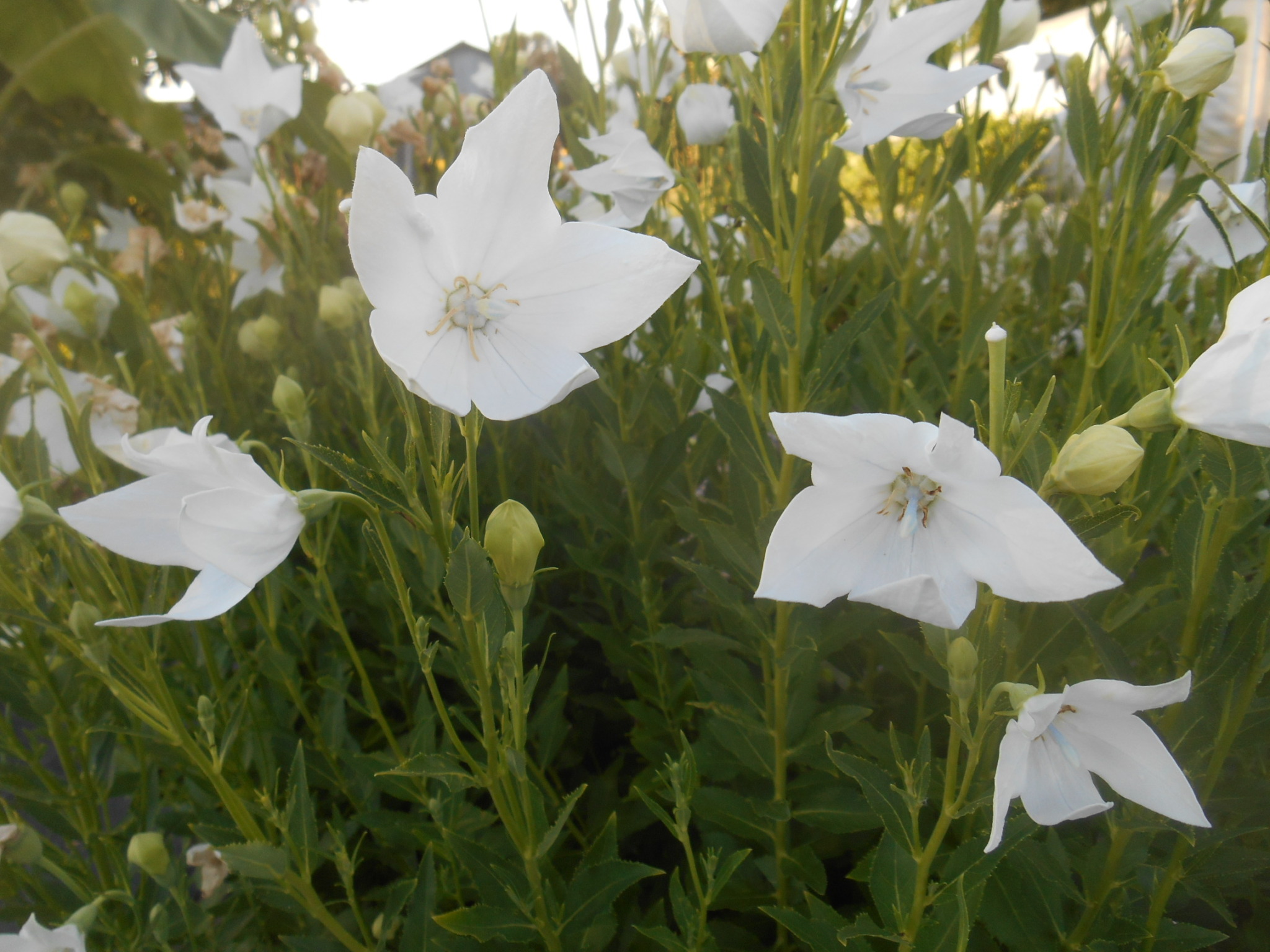Description
Balloon shaped buds opening to white bells in mid-summer to early fall.
Balloon shaped buds opening to white bells, blooming mid-summer to early fall.
Balloon shaped buds opening to white bells in mid-summer to early fall.
June – September (WOW!) short blue-purple, more blue than purple, spikes of compact flowers bloom on short, slowly creeping mat of sword-shaped foliage that suppresses weeds.
Size: 6-8” x 12”
Care: sun to part shade in well-drained soil
Native: Siberia, Mongolia & Kazakhstan
Wildlife Value: attracts pollinators. Drought tolerant; deer and rabbit resistant
According to Christian tradition, as Jesus carried the cross to Calvary, a woman wiped his face with her handkerchief, leaving the imprint of the features of his face, the vera iconica, meaning “true likeness.” When the Catholic Church canonized the woman, the Church gave her the name Saint Veronica. Medieval gardeners named a different Veronica after her due to the perceived likeness of the flower to her handkerchief. Collected by 1950 Russian botanist Nikolái Pávlov (1893-1971) described and named this in Vestn. Akad. Nauk Kazakhsk. S.S.R v.4 p. 92 (Academy of Sciences of the Kazakh SSR) in 1951. Kazakh is the name of the language of people of Central Asia inhabiting mainly Kazakhstan which became independent of Russia in 1991.
Dark pink-purple flowers from late spring to mid-summer
Size: 32” x 18”
Care: full sun to part shade in moist well-drained soil
Native: Europe
Wildlife Value: a favorite of Bumblebees
In Greek mythology Silene was a companion of Bacchus who was covered with foam. Dioicus means that male and female plants are separate. Described by 1750’s. Grown in American gardens since 1800’s
OUT OF STOCK
Atop a mound of spatula-shaped, crinkled leaves with scalloped edges rises a bounty of 4 to 5 inch tall spikes, each crowned with a hoard of tiny fuchsia-colored trumpets blowing their horns “look at me” in early to mid-summer.
Size: 4-8" x 8-12" spreading slowly by rhizomes
Care: sun to part shade in moist well-drained soil
Native: South Africa
Wildlife Value: Deer resistant. Attracts small bees and butterflies
English adventurer and naturalist William John Burchell (1781-1863) scoured South Africa from 1803 to 1815 collecting more than 50,000 specimens packed in 48 crates. In places unexplored he found insects, animals, fish and unknown plants, this being one. Although he published two volumes of his exploration, he did not finish the last, third volume, leaving another to write the botany. Premier English botanist George Bentham (1800-1884) took up the task authoring Labiatarum Genera et Species, published in 1834. He wrote the first published description and named this tiny plant with outsized charm.
“…the berries are the thing – pewter in color, with a texture like those Fourth of July sparklers of childhood memory, they have a delicious fragrance.” Allen Lacy.
Size: 9’ x 10’
Care: sun in any soil
Native: Canada to Southeastern U.S. No pruning needed but can be pruned at any time of year, if desired.
Wildlife Value: Berries relished by chickadees, red-bellied woodpeckers, swallows, Titmouse, catbirds, bluebirds, Northern flicker & yellow-rumped warblers. Bayberry thickets also provide nesting sites for songbirds, offering excellent protection from predators.
Size: Fragrant leaves used for potpourri, abundant berries used to make candles. Good road-side plant, salt tolerant.
Probably 1st collected for gardens by John Bartram (1699-1776). Offered for sale in Bartram Garden’s 1783 Broadside, America’s 1st plant catalog. In 1800’s considered “very ornamental in the shrubbery.”
**LISTED AS OUT OF STOCK BECAUSE WE DO NOT SHIP THIS ITEM. IT IS AVAILABLE FOR PURCHASE AT OUR RETAIL LOCATION.

